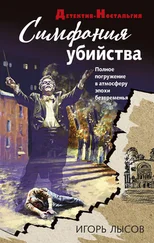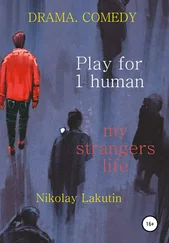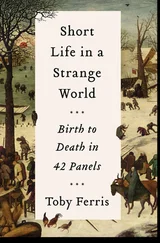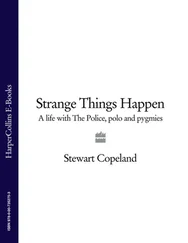Douglas Hofstadter - I Am a Strange Loop
Здесь есть возможность читать онлайн «Douglas Hofstadter - I Am a Strange Loop» весь текст электронной книги совершенно бесплатно (целиком полную версию без сокращений). В некоторых случаях можно слушать аудио, скачать через торрент в формате fb2 и присутствует краткое содержание. Жанр: Прочая документальная литература, на английском языке. Описание произведения, (предисловие) а так же отзывы посетителей доступны на портале библиотеки ЛибКат.
- Название:I Am a Strange Loop
- Автор:
- Жанр:
- Год:неизвестен
- ISBN:нет данных
- Рейтинг книги:4 / 5. Голосов: 1
-
Избранное:Добавить в избранное
- Отзывы:
-
Ваша оценка:
- 80
- 1
- 2
- 3
- 4
- 5
I Am a Strange Loop: краткое содержание, описание и аннотация
Предлагаем к чтению аннотацию, описание, краткое содержание или предисловие (зависит от того, что написал сам автор книги «I Am a Strange Loop»). Если вы не нашли необходимую информацию о книге — напишите в комментариях, мы постараемся отыскать её.
I Am a Strange Loop — читать онлайн бесплатно полную книгу (весь текст) целиком
Ниже представлен текст книги, разбитый по страницам. Система сохранения места последней прочитанной страницы, позволяет с удобством читать онлайн бесплатно книгу «I Am a Strange Loop», без необходимости каждый раз заново искать на чём Вы остановились. Поставьте закладку, и сможете в любой момент перейти на страницу, на которой закончили чтение.
Интервал:
Закладка:
At the sound of this term, a loud rustling noise is heard among the assembled crowd. Unbeknownst to the Alfbert, the Klüdgerot have for countless generations held the entities called “whole numbers” to be incomprehensibly abstract; indeed, the whole numbers were long ago unanimously declared so loathsome that they were forever banned from the planet, along with all their names. Clearly, the Alfbert’s message is not welcome here. It is of course wrong (that goes without saying), but it is not merely wrong; it is also totally absurd, and it is repugnant, to boot.
But the whiteheaded Alfbert, blithely unaware of the resentment it has churned up, continues to speak as the mob rustles ever more agitatedly. “Yes, denizens of Austranius, fabulously unlikely though it may sound, in each PM string there resides meaning. All it takes is to know how to look at the string in the proper way. By using a suitable mapping, one can…”
All at once pandemonium erupts: has the Alfbert not just uttered the despised word “one”, the long-banished name of the most dreaded of all the whole numbers? “Away with the alien! Off with its white head!” screams the infuriated mob, and a moment later, a phalanx of Klüdgerot grabs hold of the declaiming alien. Yet even as it is being dragged away, the pontificating Alfbert patiently insists to the Klüdgerot that it is merely trying to edify them, that it can perceive momentous facts hidden to them by reading the strings in a language of which they are ignorant, and that… But the angered throng drowns out the Alfbert’s grandiose words.
As the brazen alien is being prepared to meet a dire fate, a commotion suddenly breaks out among the Klüdgerot; they have plumb forgotten the age-old and venerated Klüdgerot tradition of holding a Pre-dishing-out-ofdire-fate Banquet! A team is dispatched to pick the sweetest of all PM strings from the Principial Planetary Park of Wööw, a sacred sanctuary into which no Klüdgerot has ever ventured before; when it returns with a fine harvest of succulent strings from Wööw, each of which clearly reads “I am edible”, it is greeted by a hail of thunderous applause. After the Klüdgerot have expressed their gratitude to Göd, the traditional Pre-dishing-out-ofdire-fate Banquet begins, and at last it begins to dawn on the Alfbert that it will indeed meet a dire fate in short order. As this ominous fact takes hold, it feels its white head start to spin, then to swim, and then…
Idealistically attempting to save the unsuspecting Klüdgerot, the ever-magnanimous Alfbert cries out, “Listen, I pray, O friends! Your harvest of PM strings is treacherous! A foolish superstition has tricked you into thinking they are nutritious, but the truth is otherwise. When decoded as messages, these strings all make such grievously false statements about whole numbers that no one — I repeat, no one! — could swallow them.” But the words of warning come too late, for the PM strings from Wööw are already being swallowed whole by the stubbornly superstitious Klüdgerot.
And before long, frightful groans are heard resounding far and near; the sensitive Alfbert shields its gaze from the dreadful event. When at last it dares to look, it beholds a sorry sight; on every side, as far as its sole eye can see, lie lifeless shells of Klüdgerot that but moments ago were carousing their silly heads off. “If only they had listened to me!”, sadly muses the kindly Alfbert, scratching its great white head in puzzlement. On these words, it trundles back to its strange-looking orange spacecraft at the North Pöö, takes one last glance at the bleak Klüdgerot-littered landscape of Austranius, and finally presses the small round “Takeoff” button on the craft’s leatherette dashboard, setting off for destinations unknown.
At this point, the Alfbert, having earlier swooned in terror as the banqueters began their ritual reveling, regains consciousness. First it hears shouts of excitement echoing all around, and then, when it dares to look, it beholds a startling sight; on every side, as far as its sole eye can see, masses of Klüdgerot are staring with unmistakable delight at something moving, somewhere above its white head. It turns to see what this could possibly be, just in time to catch the most fleeting glimpse of a thin shape making a strange, high-pitched rustling sound as it rapidly plummets towards —
Brief Debriefing
I offer my apologies to the late Ambrose Bierce for this rather feeble imitation of the plot of his masterful short story “An Occurrence at Owl Creek Bridge”, but my intentions are good. The raison d’être of my rather flippant allegory is to turn the classic tragicomedy starring Alfred North Whitehead and Bertrand Russell (jointly alias the Alfbert) and Kurt Gödel (alias the Klüdgerot) on its head, by positing bizarre creatures who cannot imagine the idea of any number-theoretical meaning in PM strings, but who nonetheless see the strings as meaningful messages — it’s just that they see only high-level Gödelian meanings. This is the diametric opposite of what one would naïvely expect, since PM notation was invented expressly to write down statements about numbers and their properties, certainly not to write down Gödelian statements about themselves!
A few remarks are in order here to prevent confusions that this allegory might otherwise engender. In the first place, the length of any PM string that speaks of its own properties (Gödel’s string KG being the prototype, of course) is not merely “enormous”, as I wrote at the allegory’s outset; it is inconceivable. I have never tried to calculate how many symbols Gödel’s string would consist of if it were written out in pure PM notation, because I would hardly know how to begin the calculation. I suspect that its symbol-count might well exceed “Graham’s constant”, which is usually cited as “the largest number ever to appear in a mathematical proof”, but even if not, it would certainly give it a run for its money. So the idea of anyone directly reading the strings that grow on Austranius, whether on a low level, as statements about whole numbers, or on a high level, as statements about their own edibility, is utter nonsense. (Of course, so is the idea that strings of mathematical symbols could grow in jungles on a faraway planet, as well as the idea that they could be eaten, but that’s allegoric license.)
Gödel created his statement KG through a series of 46 escalating stages, in which he shows that in principle, certain notions about numbers could be written down in PM notation. A typical such notion is “the exponent of the k th prime number in the prime factorization of n ”. This notion depends on prior notions defined in earlier stages, such as “exponent”, “prime number”, “ k th prime number”, “prime factorization” (none of which come as “built-in notions” in PM ). Gödel never explicitly writes out PM expressions for such notions, because doing so would require writing down a prohibitively long chain of PM symbols. Instead, each individual notion is given a name, a kind of abbreviation, which could theoretically be expanded out into pure PM notation if need be, and which is then used in further steps. Over and over again, Gödel exploits alreadydefined abbreviations in defining further abbreviations, thus carefully building a tower of increasing complexity and abstractness, working his way up to its apex, which is the notion of prim numbers.
Soaps in Sanskrit
This may sound a bit abstruse and remote, so let me suggest an analogy. Imagine the challenge of writing out a clear explanation of the meaning of the contemporary term “soap digest rack” in the ancient Indian language of Sanskrit. The key constraint is that you are restricted to using pure Sanskrit as it was in its heyday, and are not allowed to introduce even one single new word into the language.
Читать дальшеИнтервал:
Закладка:
Похожие книги на «I Am a Strange Loop»
Представляем Вашему вниманию похожие книги на «I Am a Strange Loop» списком для выбора. Мы отобрали схожую по названию и смыслу литературу в надежде предоставить читателям больше вариантов отыскать новые, интересные, ещё непрочитанные произведения.
Обсуждение, отзывы о книге «I Am a Strange Loop» и просто собственные мнения читателей. Оставьте ваши комментарии, напишите, что Вы думаете о произведении, его смысле или главных героях. Укажите что конкретно понравилось, а что нет, и почему Вы так считаете.












